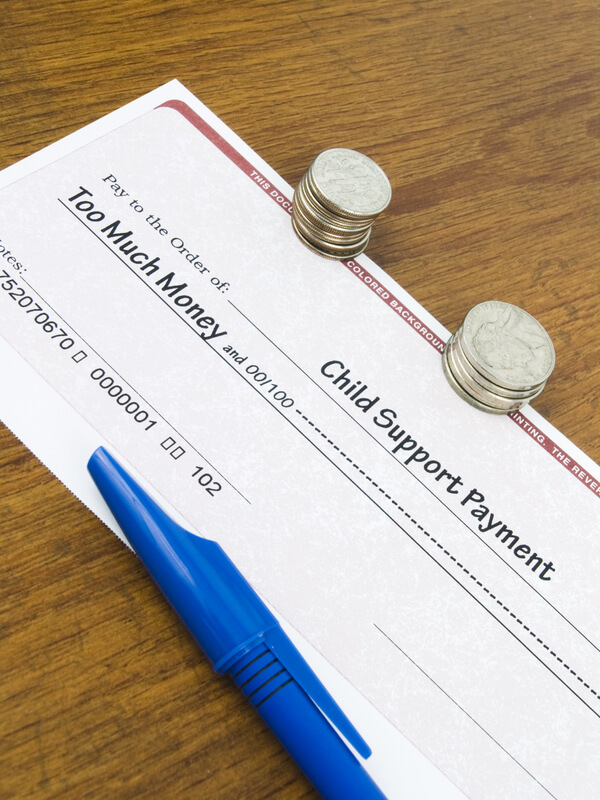The commitment to child support can present significant challenges. Balancing the financial hardship it imposes is one of those challenges. It’s essential to remember, though, that you’re not alone in this journey. Resources, advice, and professional help are available to help you uphold your obligations without resulting in financial ruin.
The benefit of having an experienced lawyer by your side cannot be understated. Their expertise can help protect your rights, represent your interests, and relieve your burdens.
The journey may be difficult, but balance is achievable. Read on to better equip yourself for this critical aspect of parenthood.
Child Support Responsibilities and Challenges
Child support is a financial commitment that demands careful planning and budgeting. It’s essential that you learn about balancing the financial hardship of child support. These responsibilities extend beyond merely providing necessities such as food and shelter. They encompass other obligations like healthcare, education, and even entertainment for the child. Furthermore, your child custody situation can further affect your child support obligations.
For instance, the following are examples of what the court can consider when calculating your payment:
- Out-of-pocket medical expenses
- Dental care
- Tuition fees for school or extracurricular activities
- Summer camps
Additionally, expenses can change significantly as children age. Also the ebb and flow of the economy and possibility of recessions can affect your budget even further. All of these responsibilities can strain finances, especially if you are not prepared.
Failing to make child support payments can have stiff penalties. From a legal perspective, missed payments can lead to wage garnishments. This arrangement means your employer withholds a portion of your wages. Other potential legal consequences include the seizure of tax refunds, driver’s license suspensions, and jail time.
Budgeting, and Balancing The Financial Hardship of Child Support
Incorporating child support payments into your financial plan requires a strategic approach. First, treat child support as a fixed expense, like rent or a mortgage payment. This mindset will ensure that it is given priority in your financial planning. After all, there can be step consequences for missing a child support payment.
Establishing an emergency fund can also provide a financial buffer. In the event of significant income loss, the paying parent may need to seek a modification of the child support order.
Similarly, if the child’s needs unexpectedly increase, the receiving parent may petition the court for an increase. In both scenarios, seek legal advice to understand your options and the potential implications.
Government and Community Resources
Government programs can provide essential support to anyone struggling with the financial demands of child support. These include programs like the following:
- Temporary Assistance for Needy Families (TANF), which offers cash assistance to families in need, and the
- Supplemental Nutrition Assistance Program (SNAP), which provides resources for food. Moreover,
- Medicaid provides health coverage for low-income individuals and families.
Numerous non-profit organizations and community resources also exist to support parents. These organizations often provide services such as legal aid, financial counseling, job placement services, and educational resources. Other organizations may offer parenting classes, psychological counseling, and resources for necessities. Together, these forms of assistance can help parents meet their obligations and mitigate hardship.
Legal Aspects of Child Support
Child support guidelines generally consider three substantial factors. A judge will examine income, the number of children, and the time spent with them.
Child support isn’t a fixed figure for the lifetime of the order. Of course as we’ve learned, balancing the financial hardship of child support isn’t easy. However, there are legal provisions that allow for the modification of your orders.
For instance, a noncustodial parent can petition to reduce payments after a job loss. However, such modifications aren’t automatic; they require evidence of a substantial change in circumstances.
The Role of a Lawyer in Child Support Struggles
A lawyer can be a vital asset. They can present all relevant factors necessary to introduce objectivity into the process. Moreover, they can help you avoid pitfalls and protect your rights. Also, they may have guidance to offer you, or tips for balancing the financial hardship of child support.
Life can also bring unexpected changes, and agreements may need modification. Your lawyer can assemble evidence, present a compelling case, and negotiate on your behalf. Their role is crucial in complex cases involving intense conflict, substantial assets, or interstate child support.
Enforcement actions can be necessary when you or the other parent fail to comply with the order. A lawyer will work with the child support enforcement agency or even take the matter to court. Conversely, if you’re the parent facing enforcement action, a lawyer can help protect your rights.
Discuss Your Child Support Challenges with a Local Attorney
The financial implications of child support can involve a balance between providing for the child and managing personal finances. Child custody can also impact the situation, or further blur the lines. The role of a legal professional in this journey is crucial. A knowledgeable lawyer can provide invaluable advice and represent your best interests.
If you or someone you know is struggling with the financial hardship of child support, don’t hesitate to seek professional help. Contact us online or call (866) 345-6784 for a free referral.

